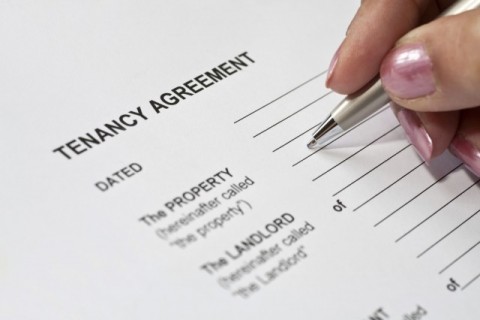This article is an external press release originally published on the Landlord News website, which has now been migrated to the Just Landlords blog.

Chancellor George Osborne announced the 2015 Budget on Wednesday, in which plans to make it illegal for private sector tenancy agreements to include clauses that stop sub-letting of the property were explained.
The Residential Landlords Association (RLA) have called the Budget “a nightmare”1 after reviewing the new sub-letting terms.
In the Budget Red Book, page 51 details the matter in question under the title Support for the sharing economy. It states that the Government will “make it easier for individuals to sub-let a room through its intention to legislate to prevent the use of clauses in private fixed-term residential tenancy agreements that expressly rule out sub-letting or otherwise sharing space on a short-term basis, and consider extending this prohibition to statutory periodic tenancies.”
Chairman of the RLA, Alan Ward, says: “The measures on sub-letting are a nightmare in the making and smack off back of the fag packet policy making.
“Key questions remained unanswered such as who will be responsible for a property if the tenant sub-letting leaves the house but the tenant they are sub-letting to stays?
“Similarly, given the Government wants landlords to check the immigration status of their tenants, who would be responsible for checking the status where sub-letting occurs?
“Whilst the RLA awaits further detail on this measure, it is difficult to see landlords supporting it.”
Tenant eviction experts Landlord Action, has also voiced its concern over the plans.
Founder of the company, Paul Shamplina, explains: “This appears to have slipped in under the radar which, if it goes ahead, will throw up a magnitude of problems in the buy-to-let industry.
“We have never seen so many sub-letting cases going to court because of unscrupulous tenants trying to cream a profit from a property they have rented.
“We experience continual problems with tenants taking out tenancy agreements and then, in some instances, not even moving into the property themselves, but putting up partitions and sub-letting to as many people as possible. They draw up separate agreements and trick sub-tenants into thinking they are the landlord. By the time landlords find out, damage to properties from over-crowding can run into thousands, and the tenant who holds the legitimate tenancy agreement is nowhere to be found.
“The detail is yet to be revealed, but in my opinion, there should have been a period of consultation with the industry before this was announced. This is not the way to fix the housing shortage, and in fact will have quite the opposite effect if more and more landlords are exposed to the risk of nightmare sub-tenants. Giving landlords even less control over their own property by preventing them from instilling clauses which prevent sub-letting could drive more good landlords out of the marketplace.”1
Landlord Action is involved in a Channel 5 documentary, due to be shown in a few months, that exposes the level of sub-letting in the country.
Furthermore, the RLA is also disappointed in the Budget’s failure to lengthen the Landlord’s Energy Savings Allowance, which will end next month. The allowance has supported landlords in investing in energy efficiency improvements in their rental properties.
Discontinuing the allowance will mean that improvements can only be financed by the tenants through their energy bills, as included in the Green Deal.
Ward says: “Ministers have talked the talk on improving the energy efficiency of the nation’s rented housing stock, but today they have pulled the rug from under the feet of landlords and tenants.”2
2 http://www.landlordtoday.co.uk/news_features/2015-Budget%3A-Tenants-will-be-able-to-sublet




